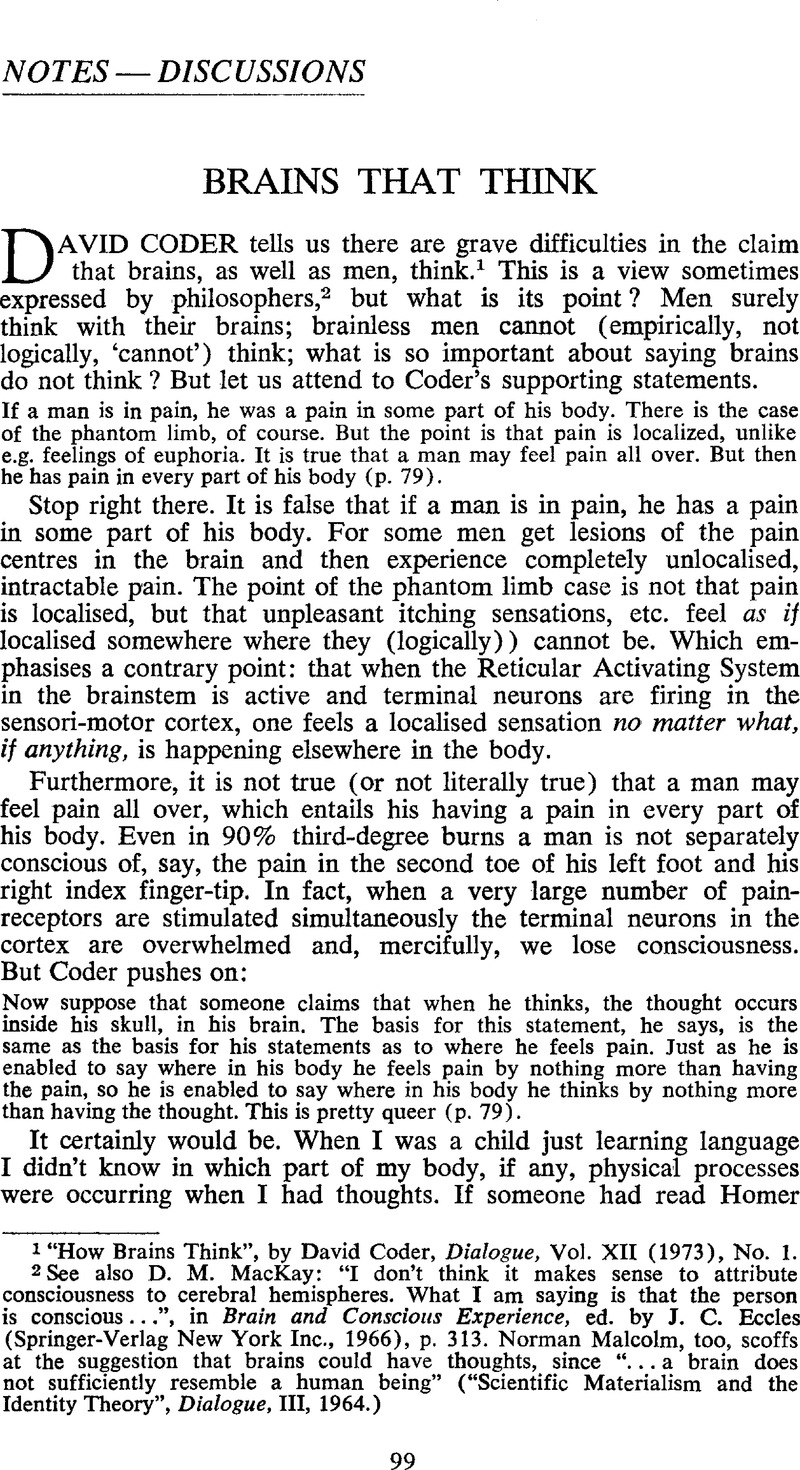No CrossRef data available.
Article contents
Brains that Think
Published online by Cambridge University Press: 09 June 2010
Abstract

- Type
- Notes—Discussions
- Information
- Dialogue: Canadian Philosophical Review / Revue canadienne de philosophie , Volume 13 , Issue 1 , March 1974 , pp. 99 - 104
- Copyright
- Copyright © Canadian Philosophical Association 1974
References
1 “How Brains Think”, by Coder, David, Dialogue, Vol. XII (1973), No. 1.Google Scholar
2 See also MacKay, D. M.: “I don't think it makes senseto attribute consciousness to cerebral hemispheres. What I am saying is thatthe person is conscious…”, in Brain and Conscious Experience, ed. by Eccles, J. C. (Springer-Verlag New York Inc., 1966), p. 313Google Scholar. Norman Malcolm, too, scoffs at the suggestion that brains could have thoughts, since “… a brain does not sufficiently resemble a human being” (“Scientific Materialism and the Identity Theory”, Dialogue, III, 1964.)
3 Unless the lesions occur at an early age when the brain is plastic enough to allow speech centres to develop elsewhere; only about 30% of adult aphasics recover speech.
4 See Gazzaniga, M. S., Velletri, A. S. and Premack, D., “Language Training in Brain-Damaged Human”, Fed. Proc. 30:265 (1971).Google Scholar
5 See Premack, D., “Language in Chimpanzee ?”, Science 172: 808–22 (1971).CrossRefGoogle ScholarPubMed
6 “Can a Brain have a Pain ?”, by Gert, Bernard, Philosophy and Phenomenological Research, XXVII (1967), pp. 432–36.CrossRefGoogle Scholar
7 Except in the very different sense that in the two cerebral hemispheres of a normal human we have the basis for two persons. I argue this in “Multiple Identity”, The Personalist (Vol. 54, No. 3, Summer 1973)Google Scholar; and in “Brain Bisection and Personal Identity,” British Journal for the Philosophy of Science (March, 1974).
8 I have tried to use sufficiently vague language here to avoid favouring any particular mind-body theory; similarly with the sequence of neural and mental events that follows. Any theory which grants the brain-dependence of our mental lives is compatible with the point I am making. Of coursethe exact timing of events would determine whether Epiphenomenalism or Interactionism or Mind-Brain Identity is the truer description of those events; the difficulty here is to be sure of that timing, since only the brainin vitro feels the cramp, etc.
9 The above paradox is not unlike Bertrand Russell's paradox of our having complete memories of a past when in fact the world sprang into being five minutes ago (The Analysis of Mind, George Allen & Unwin, London, 1922, pp. 159–60)Google Scholar. As Russell correctly remarks, such paradoxes are uninteresting because logically indefeasible.


